Related Research Articles

Martin Luther King Jr. was an American Baptist minister and activist who was one of the most prominent leaders in the civil rights movement from 1955 until his assassination in 1968. A Black church leader and a son of early civil rights activist and minister Martin Luther King Sr., King advanced civil rights for people of color in the United States through nonviolence and civil disobedience. Inspired by his Christian beliefs and the nonviolent activism of Mahatma Gandhi, he led targeted, nonviolent resistance against Jim Crow laws and other forms of discrimination in the United States.

Morehouse College is a private historically black men's liberal arts college in Atlanta, Georgia. Anchored by its main campus of 61 acres (25 ha) near downtown Atlanta, the college has a variety of residential dorms and academic buildings east of Ashview Heights. Along with Spelman College, Clark Atlanta University, and the Morehouse School of Medicine, the college is a member of the Atlanta University Center consortium. Founded by William Jefferson White in 1867 in response to the liberation of enslaved African-Americans following the American Civil War, Morehouse adopted a seminary university model and stressed religious instruction in the Baptist tradition. Throughout the late 1800s and early 1900s, the college experienced rapid, albeit financially unstable, institutional growth by establishing a liberal arts curriculum. The three-decade tenure of Benjamin Mays during the mid-20th century led to strengthened finances, an enrollment boom, and increased academic competitiveness. The college has played a key role in the development of the civil rights movement and racial equality in the United States.

Coretta Scott King was an American author, activist, and civil rights leader and the wife of Martin Luther King Jr. from 1953 until his death. As an advocate for African-American equality, she was a leader for the civil rights movement in the 1960s. King was also a singer who often incorporated music into her civil rights work. King met her husband while attending graduate school in Boston. They both became increasingly active in the American civil rights movement.

Daisaku Ikeda is a Japanese Buddhist philosopher, educator, author, and nuclear disarmament advocate. He served as the third president and then honorary president of the Soka Gakkai, the largest of Japan's new religious movements. Ikeda is the founding president of the Soka Gakkai International (SGI), the world's largest Buddhist lay organization, which claims to have approximately 12 million practitioners in 192 countries and territories, more than 1.5 million of whom reside outside of Japan as of 2012.

Benjamin Elijah Mays was an American Baptist minister and American rights leader who is credited with laying the intellectual foundations of the American civil rights movement. Mays taught and mentored many influential activists, including Martin Luther King Jr, Julian Bond, Maynard Jackson, and Donn Clendenon, among others. His rhetoric and intellectual pursuits focused on Black self-determination. Mays' commitment to social justice through nonviolence and civil resistance were cultivated from his youth through the lessons imbibed from his parents and eldest sister. The peak of his public influence coincided with his nearly three-decade tenure as the sixth president of Morehouse College, a historically black institution of higher learning, in Atlanta, Georgia.
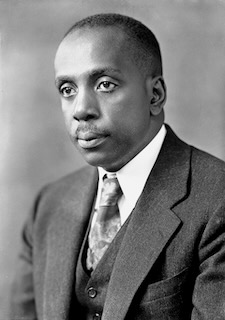
Howard Washington Thurman was an American author, philosopher, theologian, mystic, educator, and civil rights leader. As a prominent religious figure, he played a leading role in many social justice movements and organizations of the twentieth century. Thurman's theology of radical nonviolence influenced and shaped a generation of civil rights activists, and he was a key mentor to leaders within the civil rights movement, including Martin Luther King Jr.

Martin Luther King Sr. was an African-American Baptist pastor, missionary, and an early figure in the Civil Rights Movement. He was the father and namesake of the civil rights leader Martin Luther King Jr.

The Martin Luther King Jr. National Historical Park covers about 35 acres (0.14 km2) and includes several sites in Atlanta, Georgia related to the life and work of civil rights leader Martin Luther King Jr. Within the park is his boyhood home, and Ebenezer Baptist Church — the church where King was baptized and both he and his father, Martin Luther King Sr., were pastors — as well as, the grave site of King, Jr., and his wife, civil rights activist Coretta Scott King.

Candler School of Theology is one of seven graduate schools at Emory University, located in metropolitan Atlanta, Georgia. A university-based school of theology, Candler educates ministers, scholars of religion and other leaders. It is also one of 13 seminaries affiliated with the United Methodist Church.
Anwar Fazal is a leading civil society activist in multiverse issues including consumer, health, environment, urban governance, heritage and peace. In 1982, he was awarded the Right Livelihood Award for "fighting for the rights of consumers and helping them to do the same."
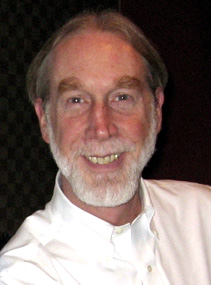
William L. McLennan, Jr., better known as Scotty McLennan, is an American Unitarian Universalist minister, lawyer, professor, published author, public speaker and senior administrator at Stanford University in Stanford, California. From January 1, 2001 until August 2014, McLennan served as the Dean for Religious Life at Stanford University, where he oversaw campus-wide religious affairs, supervised over 30 university student groups that constituted the Stanford Associated Religions, and was the minister of Stanford Memorial Church. He currently teaches about the moral and ethical aspects of business leadership at the Stanford Graduate School of Business.
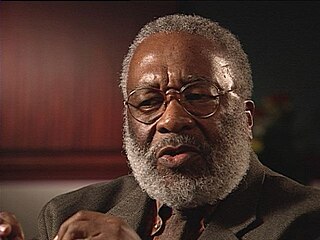
Vincent Gordon Harding was an African-American pastor, historian, and scholar of various topics with a focus on American religion and society. A social activist, he was perhaps best known for his work with and writings about Martin Luther King Jr., whom Harding knew personally. Besides having authored numerous books such as There Is A River, Hope and History, and Martin Luther King: The Inconvenient Hero, he served as co-chairperson of the social unity group Veterans of Hope Project and as Professor of Religion and Social Transformation at Iliff School of Theology in Denver, Colorado. When Harding died on May 19, 2014, his daughter, Rachel Elizabeth Harding, publicly eulogized him on the Veterans of Hope Project website.

Clayborne Carson is an American academic who is a professor of history at Stanford University and director of the Martin Luther King, Jr., Research and Education Institute. Since 1985, he has directed the Martin Luther King Papers Project, a long-term project to edit and publish the papers of Martin Luther King Jr.
The Morehouse College Glee Club, founded in 1911, is the official choral group of Morehouse College. The Glee Club has a long tradition of many notable public appearances, having performed at Martin Luther King Jr.'s funeral, President Jimmy Carter's inauguration, Super Bowl XXVIII, and the 1996 Summer Olympics in Atlanta. The Glee Club's international performances include tours in Africa, Russia, Poland and the Caribbean. The group also appeared on the soundtrack for the movie School Daze, directed by Morehouse alumnus Spike Lee.
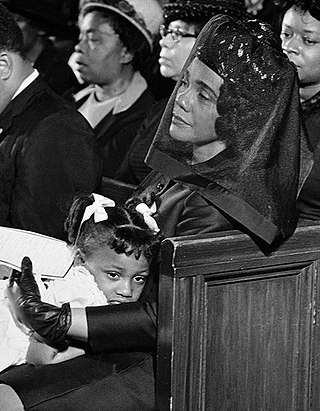
The first memorial service following the assassination of Martin Luther King Jr. on April 4, 1968, took place the following day at the R.S. Lewis Funeral Home in Memphis, Tennessee. This was followed by two funeral services on April 9, 1968, in Atlanta, Georgia, the first held for family and close friends at Ebenezer Baptist Church, where King and his father had both served as senior pastors, followed by a three-mile procession to Morehouse College, King's alma mater, for a public service.
Otis Moss Jr. is an American pastor, theologian, speaker, author, and activist. Moss is well known for his involvement in the Civil Rights Movement and his friendship with both Martin Luther King Jr. and Martin Luther King Sr. He is also the father of Otis Moss III, the current pastor of the famous Trinity United Church of Christ in Chicago.
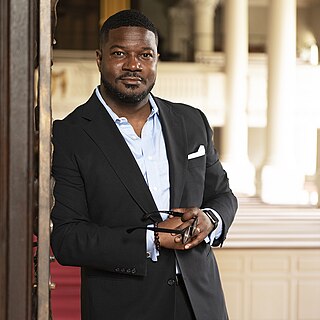
Jonathan Lee Walton is an author, ethicist and religious scholar. He is the President of Princeton Theological Seminary in Princeton, New Jersey. He was previously Dean of Wake Forest University School of Divinity, Presidential Chair in Religion & Society and Dean of Wait Chapel. He is the author of A Lens of Love: Reading the Bible in its World for Our World.
South-View Cemetery is a historic African-American-founded cemetery located approximately 15 minutes from downtown Atlanta, Georgia. An active operational cemetery on over 100 acres of land, it is the oldest African-American cemetery in Atlanta, Georgia and the oldest African-American “non eleemosynary” corporation in the country. Founded in 1886, it has since served as the burial place for many leaders in the civil rights movement including Julian Bond and John Lewis. Martin Luther King Jr. was originally buried here but was later moved to the King National Historic Park in Atlanta.
Marva Griffin Carter is an American musician, composer, musicologist, and author. She has worked as an academic administrator and professor at Georgia State University since 1993. In 2020 the Society for American Music recognized her work with a Lifetime Achievement Award, granted "in recognition of the recipient's significant and substantial lifetime achievement in scholarship, performance, teaching, and/or support of American Music."
References
- ↑ "Lawrence Edward Carter Sr., PH.D., D.D., D.H., D.R.S., D.H.C., MULT". Morehouse College. Retrieved 2017-04-19.
- 1 2 3 4 5 6 7 "Dean of the Chapel : Morehouse college". morehouse.edu. Retrieved 2021-05-21.
- 1 2 "Dr. Lawrence Carter, Sr., '60, Educator – West High Alumni Association". westhighalumni.com. Retrieved 2023-03-24.
- 1 2 3 4 "Lawrence Carter | The HistoryMakers". www.thehistorymakers.com. Retrieved 2017-04-19.
- ↑ "Lawrence Carter, Sr. (STH'68,'70,'79) to Receive Boston University 2021 Distinguished Alumni Award | School of Theology". www.bu.edu. Retrieved 2023-05-05.
- ↑ "Marva Carter". School of Music. Retrieved 2021-05-21.
- ↑ "2020 Lifetime Achievement Award to Dr. Marva Griffin Carter - Georgia State University News - College of the Arts, Faculty, Music". Georgia State News Hub. 2020-06-22. Retrieved 2021-05-21.